WAS JESUS AN ENTREPRENEUR? PART 1
BEING AN ENTREPRENEUR
INTRODUCTION
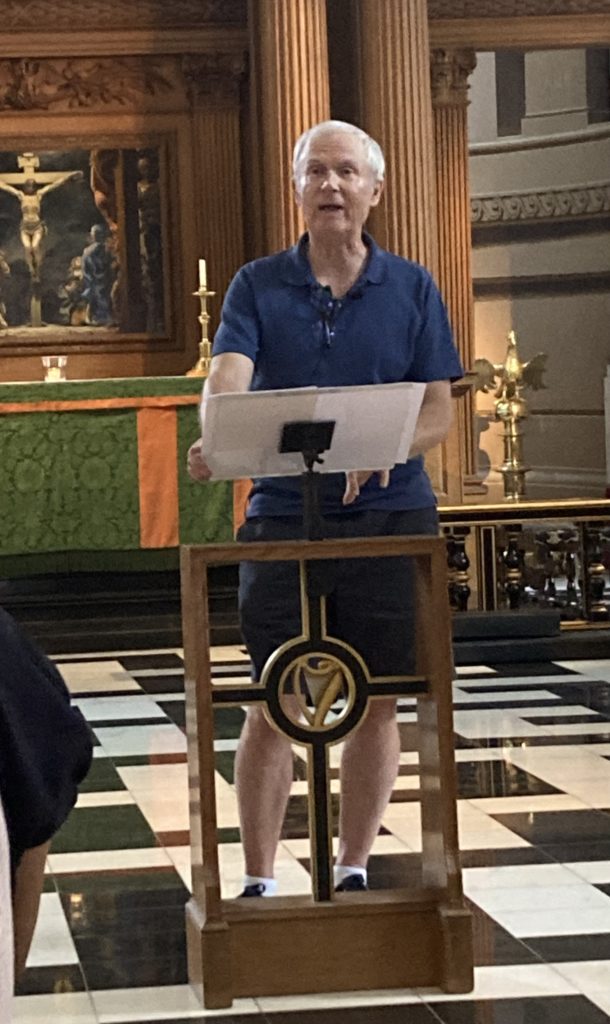
Entrepreneurs are, or at least entrepreneurship is, quite popular these days. For the last two hundred years it is entrepreneurs who have driven economic growth and so prosperity for millions. One definition of an entrepreneur is someone who develops an enterprise around an innovation. It is not always inventors who have driven economic growth but those who saw and capitalised on marketing opportunities.
CHARACTERISTICS OF AN ENTREPRENEUR
Entrepreneurs are singular people, but they have several characteristics in common. Luke Johnson (of Risk Capital Partners, the Centre for Entrepreneurs etc.) used words like hungry for success, workaholic, maverick. They are contrarian, passionate, creative, and impatient, especially with bureaucracy. They are future-oriented, visionary and tough. They create something that was not there before. New players in an organisation who are entrepreneurs both invest and disrupt.
IN THE FAMILY
Entrepreneurs are creative, innovative, passionate. They may or may not make money. My mother and my cousin Tony (or Anthony) are both good examples.
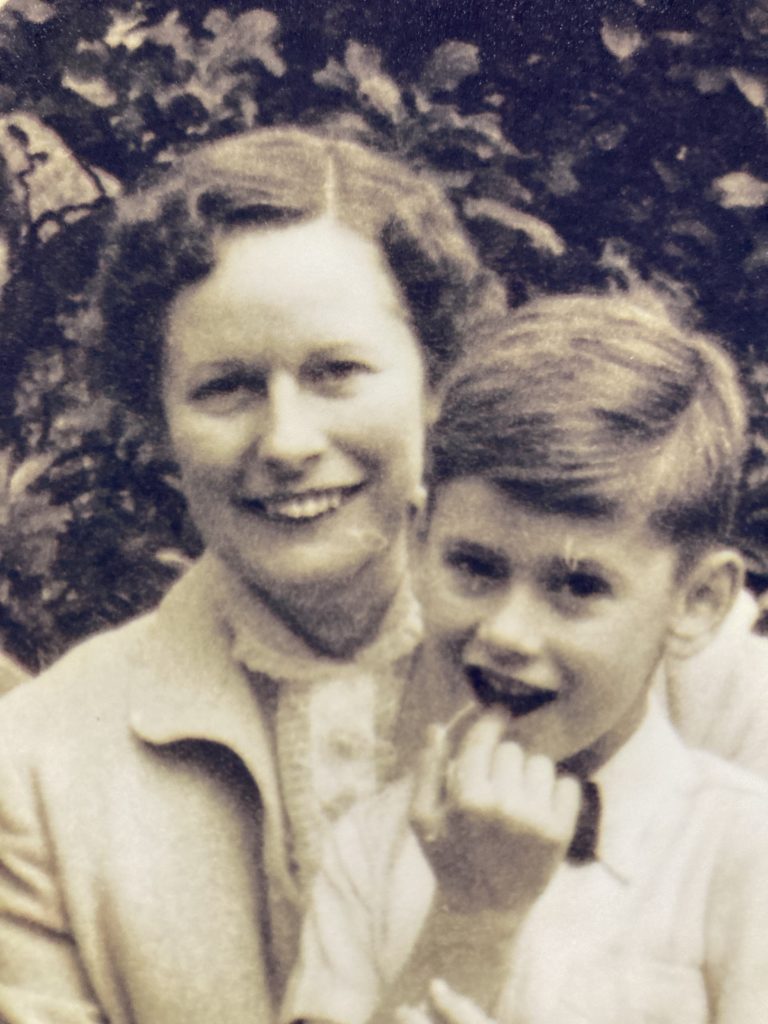
I have first hand experience of an entrepreneur – my mother. Mum was born in 1908, worked in an office and married Dad when she was 34. She was highly political, an active member of the Peace Pledge Union and a great admirer of Gandhi. In the 1950’s she campaigned for independence for the UK’s African colonies. She created the Rugby Africa Circle, the Coventry Africa Circle and the Leamington Africa Circle. Lord Hunt of Everest was on her committee. We got to know serious political players who came to speak at public meetings. Trevor Huddlestone, Kenneth Kaunda, Kofi Busia, Tom Mboya, E F Schumacher, Judith Todd were among them. She also bought a house for Commonwealth students in Rugby. Which meant dealing with problems like live chickens in the kitchen and racial disputes between African and Caribbean students. She didn’t make money, but she didn’t lose it. When she was about 90 and suffering from severe back pain she said, “I’m not interested in the past. I’m interested in the future.”
If that’s not being entrepreneurial, what is?
My mother in 1956, with my brother Martin
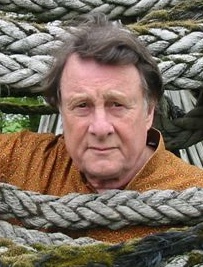
Tony’s father was a well-known art dealer, Henry (Heinz) Roland of Roland, Browse an Delbanco. From 1960 Tony (Anthony) created the Roland Collection, 600 films on art, Tony made 16 of them, starting with Delacroix and Rembrandt’s Life of Christ. They were groundbreaking in that Tont commissioned specially composed music and there was no spoken commentary at all. The art was allowed to speak for itself. The collection has been used by over 8,000 museums and galleries worldwide. It was one of the official cultural events at the Mexico Olympics in 1968. Then in 1969 he opened the 400-seater Art Film Theatre off Leicester Square. In the1980’s he set up three open air screenings in Edinburgh , Washington and Brooklyn. And in 2000 he buried 34 km of cable among the trees of Regents Park to create a popular aural kaleidoscope using Bluetooth.
Tony was constantly creating new, exciting and innovative ways of losing money. But you can’t deny he was an entrepreneur.
JESUS
It is interesting to look at Jesus from an unexpected viewpoint, namely whether or not he was an entrepreneur.
Entrepreneurs either bring about a new product, like the WorldWideWeb (Tim Berners-Lee), or a new project such as mass car ownership (Henry Ford). It is clear that Jesus did not create a new product, such as a self-lighting menorah. But did he have a social project?
Three issues arise:
- his character and personality;
- his role and place in Jewish society;
- and did he have a project?
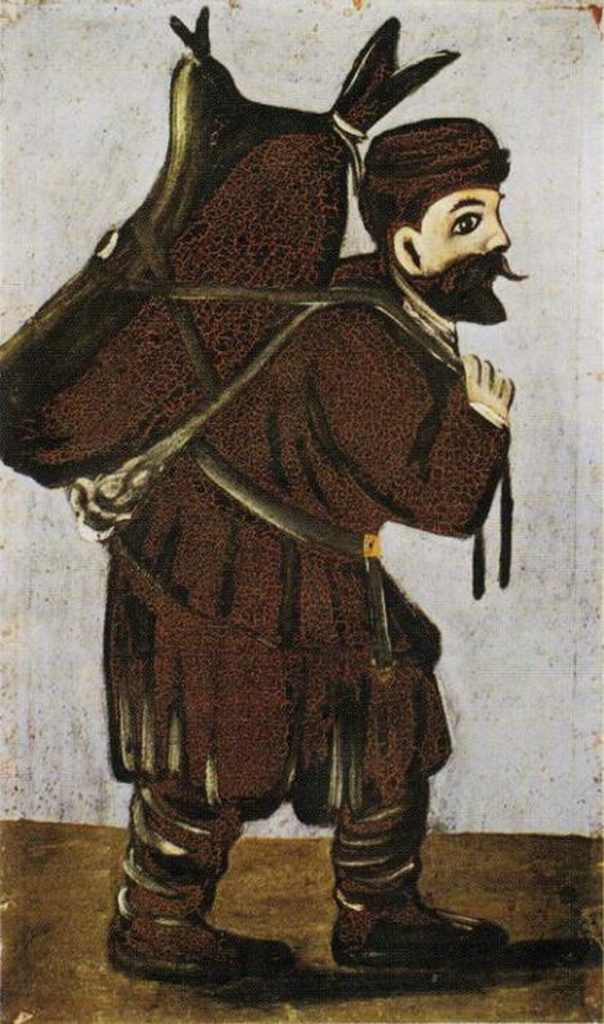
JESUS’ PERSONALITY
If you read the Gospel of Mark, our earliest account, Jesus had many of the traits of a typical entrepreneur. He was innovative, impatient, creative, maverick. Here are some examples:
Radical innovation. “No one puts new wine into old wineskins; otherwise, the wine will burst the skins, and the wine is lost, and so are the skins; but one puts new wine into fresh wineskins.” (Mark 2.22)
Image from Georgia of a man carrying a wineskin
‘You have heard that it was said to those of ancient times, “You shall not murder”; and “whoever murders shall be liable to judgement.” But I say to you that if you are angry with a brother or sister, you will be liable to judgement…’. (Matthew 5.21-22)
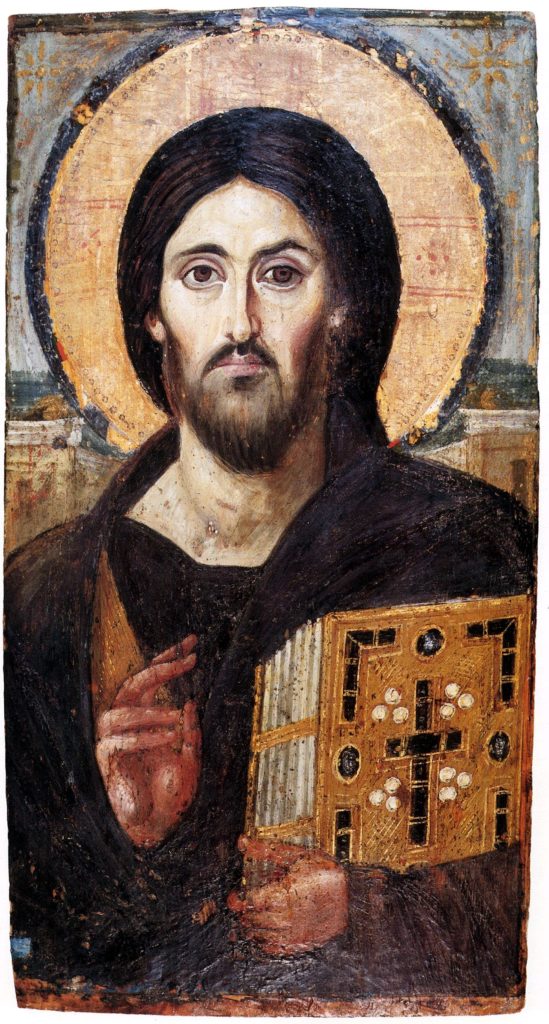
Anti-bureaucracy. ‘The sabbath was made for man, not man for the sabbath; so the son of man is lord even of the sabbath.’ (Mark 2.27-28)
Anger: And Jesus said to the man who had the withered hand, ‘Come forward.’ Then he said to them, ‘Is it lawful to do good or to do harm on the sabbath, to save life or to kill?’ But they were silent. He looked around at them with anger he was grieved at their hardness of heart and said to the man, ‘Stretch out your hand.’ (Mark 3.5)
In general, when you read Jesus’ words in Mark it is not possible to say the same thing more forcefully.
JESUS’ PLACE IN ISRAEL
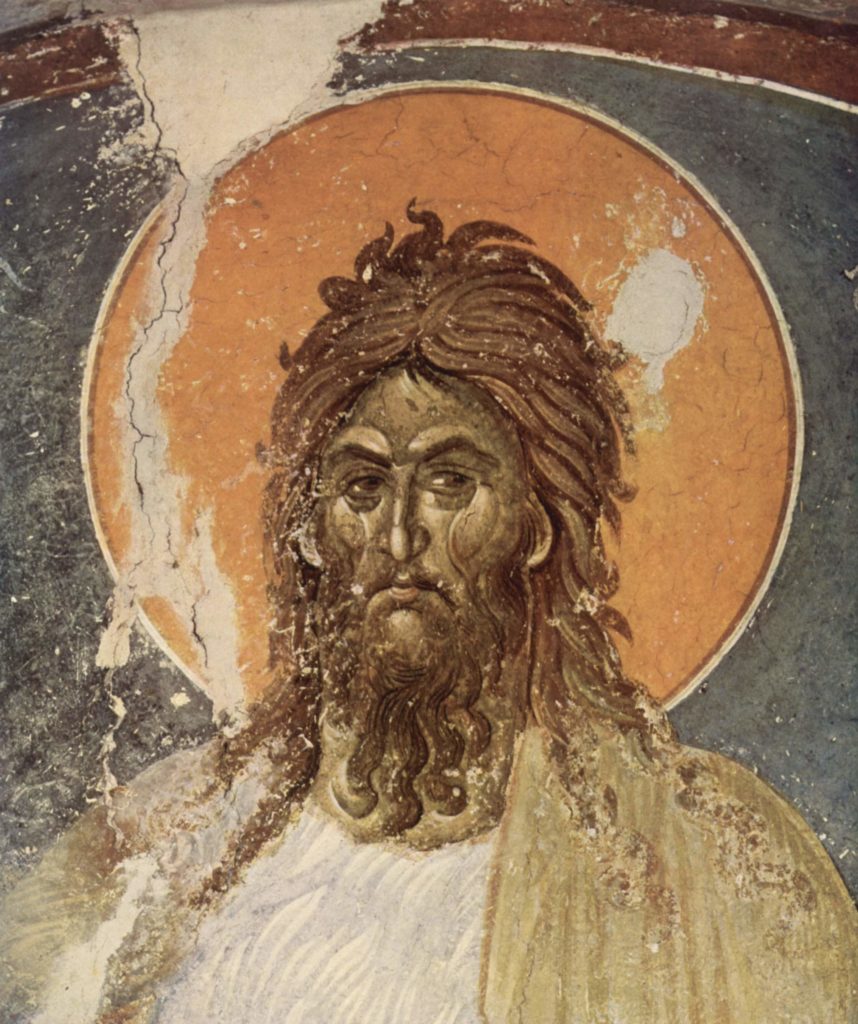
Unless you were related to one of the priestly or Levite families, there were just three significant roles open to a member of Israel in Jesus’ day: prophet, rabbi or messiah.
Prophet: Certainly the popular perception of Jesus in Galilee was as a prophet: ’On the road Jesus asked his disciples, “Who do people say that I am?” And they answered him, “John the Baptist; and others, Elijah; and still others, one of the prophets.” (Mark 8.27-28)
What was a prophet? The key idea was of someone called to be God’s spokesman. But not someone who created something new, not an entrepreneur.
Icon of John the Baptist
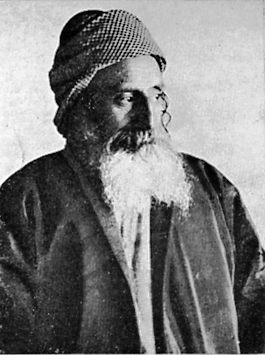
Rabbi: A rabbi was a general title for a spiritual teacher. Rabbis interpreted the law so that it was fit for ordinary use. For example, they could suggest guidelines for divorce, or rule that when Exodus laid down the punishment of ‘an eye for an eye’ that could be commuted to a fine.
After the destruction of Jerusalem in 70 CE, a leading Pharisee, Yohanan ben Zakkai. set up national structures on a new basis without the Temple or temple sacrifices or the priesthood. Rabbinic Judaism is what has continued to this day. Certainly entrepreneurial but not normal.
Chief rabbi of Yemen c. 1930.
Jesus kept away from that whole aspect of directing everyday life. Here is a classic instance: ‘Someone in the crowd said to him, ‘Teacher, tell my brother to divide the family inheritance with me.’ But he said to him, :”Man, who set me to be a judge or arbitrator over you?”’ (Luke 12.13-14)
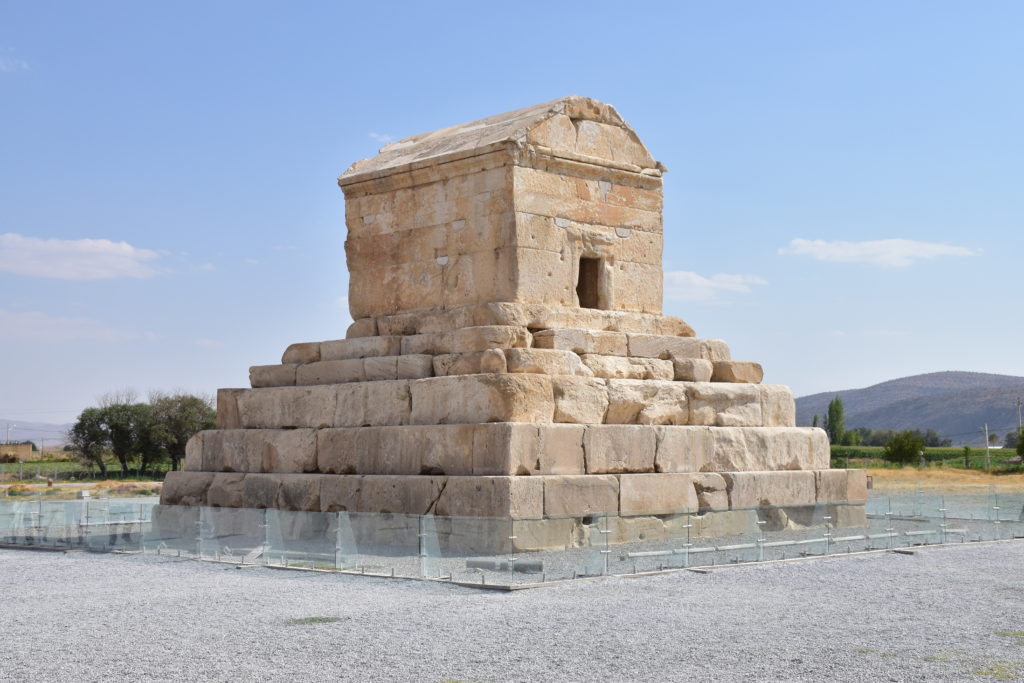
Messiah: Literally, the Anointed One. The disciples who met Jesus on the road to Emmaus said, “we had hoped that he was the one to redeem Israel.” (Luke 24.21) – whatever that meant.
However, it was clear to his contemporaries that Jesus was not the Messiah. The Messiah was a expected to deliver Israel from its oppressors.
The only person in the Bible to be called Messiah was the Persian king Cyrus. This was because he allowed the exiled Jews to return to the land of Israel, see Isaiah 45.1. Photo is of his tomb in Iran.
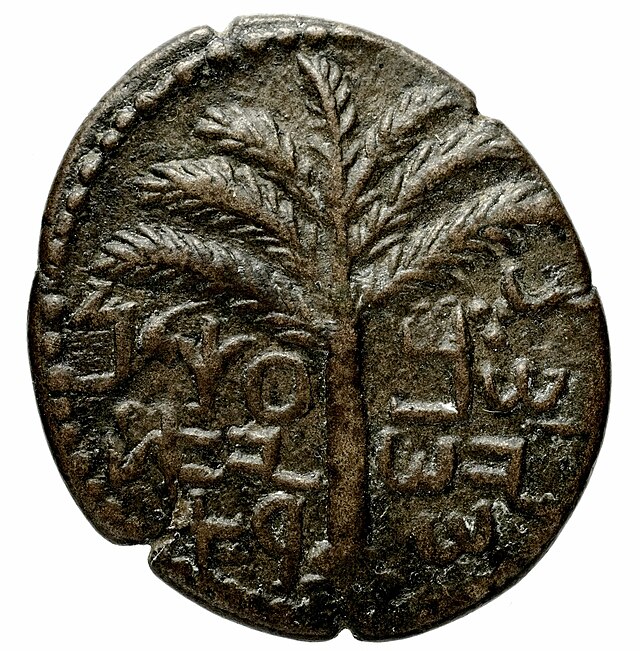
In 132 CE Simon Bar Koseba raised a successful revolt against the Romans. He created a Jewish state which lasted for three years. Here is a coin he issued. The respected Rabbi Akiba declared that he was the Messiah. Sadly, he wasn’t.
It is clear that Jesus does not fit into this mould. When Simon Peter said, “You are the Messiah,” Jesus responded by sternly ordering them ‘not to tell anyone about him. ‘Then he began to teach them that the Son of Man must undergo great suffering, and be rejected by the elders, the chief priests, and the scribes, and be killed, and after three days rise again.’ (Mark 8.30-31)
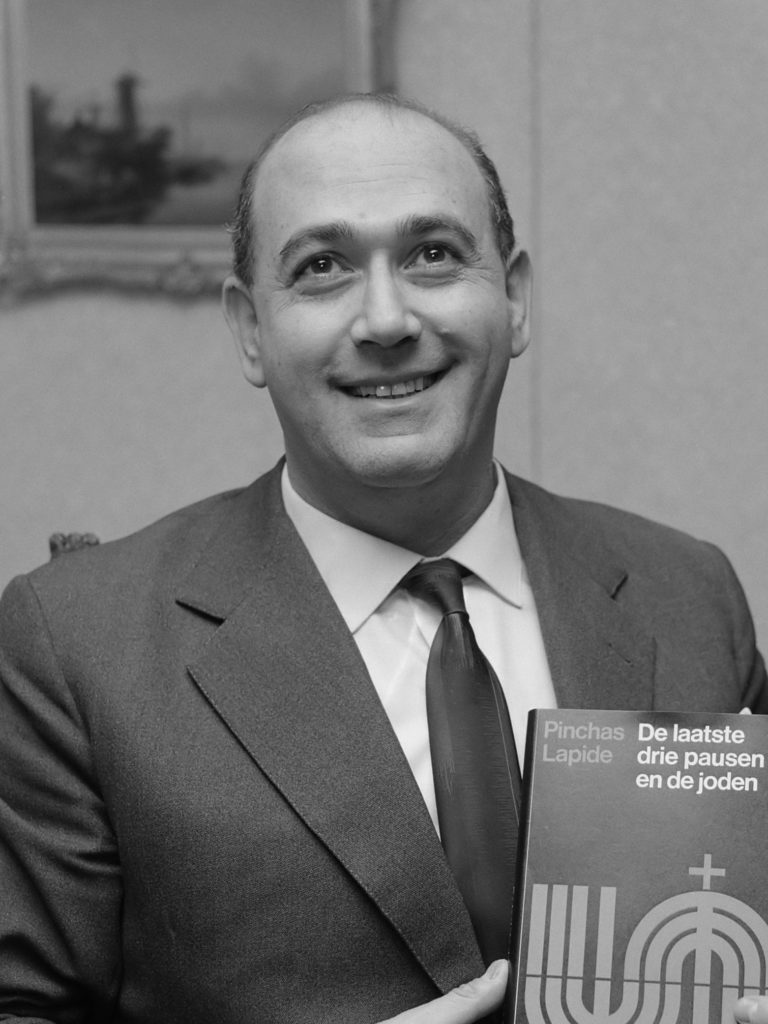
Pinchas Lapide (1922-1997) was a Jewish theologian, historian and diplomat. In 1983 he wrote a book called ‘the Resurrection of Jesus – a Jewish perspective’. He wrote, “I accept the resurrection of Jesus not as an invention of the community of disciples, but as an historical event.” However he did not think that Jesus was the Messiah, so he remained a Jew.
The only way that Jesus could see himself as the Messiah was by so radically re-interpreting the Messiah’s mission that none of his fellow Jews, not even his own closest disciples, had the mental furniture to take it in, let alone believe it.
The mould had to be broken.
WHAT DID JESUS DO?
Not much. He continued the message of John the Baptist, “Repent for the kingdom of heaven/kingdom of God is near.”
He constantly encouraged people to give away their wealth. His view seems to have been that money in and of itself was dangerous. (Luke14.33)
He randomly healed people and cast out troubling spirits.
He sent out two marketing missions, one from his inner circle of 12, and the other from a larger number of 70. They were told to proclaim the same message as John the Baptist, to help the sick and to accept whatever hospitality was offered. But there was no programme to follow, no instructions. The missions seem to have been simply about raising a culture of expectation.

No wonder that John the Baptist in prison started thinking, ‘have I backed the wrong horse?’ “Are you the one who is to come, or are we to wait for another?” (Luke 7.19).
Don’t miss
Was Jesus an Entrepreneur? Part 2:
‘Jesus’ Project’
Out 15th August
WAS JESUS AN ENTREPRENEUR? PART 2
JESUS’ PROJECT
0 Comments